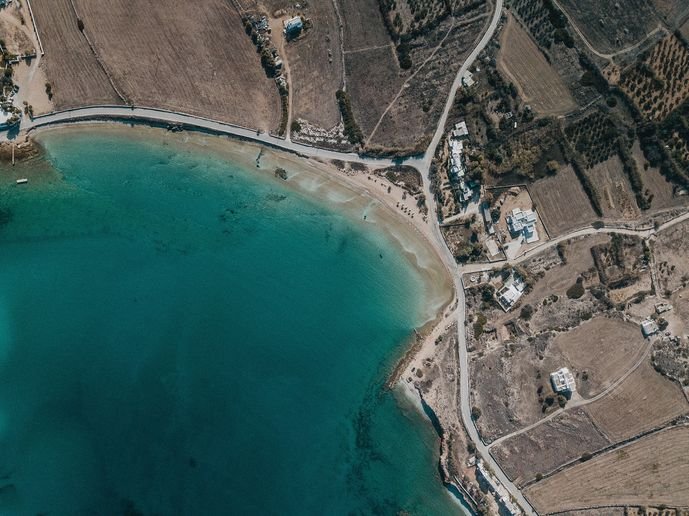
Greece has the highest level of “range anxiety” for electric vehicle drivers. It has no fast chargers for EVs per 100 km of the Trans-European Transport Network.
Photo: Unsplash
Greece comes in first when it comes to the highest level of “range anxiety” facing drivers of electric vehicles in Western Europe, according to a study by StressFreeCarRental.com.
In this study, StressFreeCarRental.com looked at the prevalence of EV chargers on key routes in 13 European countries. Fewer available chargers for electric vehicles can mean an increase in anxiety as motorists have to explore less well-known roads to find charging points for their vehicle.
Greece has no fast CCS (combined charging system) chargers for EVs per 100 kilometers (km) of the Trans-European Transport Network (TEN-T), according to the latest available data. This means that drivers are more likely to be stranded if they run out of electricity on their journey.
The TEN-T is a planned network of roads, railways, airports, and water infrastructure in the European Union that generates improvements to primary road, railways, airports, and ports to provide integrated, long distance high-speed routes. The core network has a completion target of 2030.
“Our research explores the prevalence of CCS chargers on key routes in Western Europe along with the cost to power your electric vehicle against the price of petrol,” said a spokesperson for StressFreeCarRental.com. “There are some fascinating results which demonstrate which countries have more chargers on main routes and lower fuel and electric costs compared to others. It is a changing picture as economics and infrastructure evolves with time, but demonstrates the importance of planning your journey in advance, whether for business or pleasure.”
For the availability of CCS chargers, 2020 figures show Italy and Spain fair little better than Greece with just 2.3 chargers per 100 km in Italy and 2.4 chargers over the same distance in Spain. They are followed by Luxembourg with 2.5 chargers and Portugal with 2.9 chargers per 100 km, according to the study.
At the other end of the scale, motorists have access to an abundance of CCS chargers per 100 km in the U.K. with 19.7, followed by Holland with 17.2 and Germany with 14.4. These are the only three countries with CCS chargers available in double figures; Sweden takes fourth place with 8.4 chargers.
When looking at the cost of needing to power an EV, Germany has the most expensive price for charging EVs at 4.65 Euros to travel 100 km. Denmark comes in second at a cost of 4.35 euros to travel the same distance, followed by Belgium in third at 3.9 euros and the U.K. in fourth at 3.6 euros.
The Dutch may increasingly favor electric vehicles as their chosen mode of transport since the Netherlands has the most expensive petrol in Western Europe. Currently, it costs 18.65 euros to fill a tank to travel 100 km. Norway comes in second for most expensive petrol at a cost of 17.92 euros followed by Denmark in third at 16.8 euros.
In the study, Luxembourg had the cheapest petrol at 13.36 euros to travel 100 km, followed by Belgium at 13.84 euros and Spain at 14.16 euros. These figures are all on the basis that petrol vehicles need eight liters of petrol to travel 100 km.
